Retro Replay Review
Gameplay
Ghostbusters: The Video Game drops you into the proton-pack boots of the franchise’s newest recruit, tasking you with corralling the paranormal under the watchful eye of the original Ghostbusters. From the moment you power up your proton beam, the core loop of weakening ghosts, latching your beam, and then luring them into a trap feels deeply satisfying. Aiming is smooth and intuitive, and the gradual feedback of watching a ghost’s energy bar deplete creates a constant sense of urgency and accomplishment.
(HEY YOU!! We hope you enjoy! We try not to run ads. So basically, this is a very expensive hobby running this site. Please consider joining us for updates, forums, and more. Network w/ us to make some cash or friends while retro gaming, and you can win some free retro games for posting. Okay, carry on 👍)
As you progress through the game, you unlock and upgrade a suite of Ghostbusting gear. The P.K.E. Meter serves as your supernatural radar, guiding you toward hidden hauntings and interactive set-pieces. Later on, you gain access to the slime cannon—an inventive tool used to free possessed civilians before safely trapping the spirits within. Money earned from bounties can be reinvested into faster trap deployment, wider beam arcs, and sturdier vacuums, making each upgrade feel impactful.
Variety emerges through well-designed levels that revisit iconic New York City landmarks, from the haunted subway tunnels to the rooftop of Shandor’s temple. Each stage layers on new ghost types—slimy specters, mischievous poltergeists, even flying ghouls—that force you to adapt your tactics. Meanwhile, occasional environmental puzzles, like clearing debris with your proton blast or navigating steam-filled corridors, offer a refreshing break from straight-up ghost combat.
Graphics
Visually, Ghostbusters: The Video Game strikes a careful balance between faithful film homage and late-2000s tech polish. Character models of Venkman, Stantz, Spengler, and Zeddemore capture the actors’ likenesses, while in-game animations—like the signature rattle of the proton pack or the sputter of your trap—add tactile realism. The cutscenes, rendered in crisp prerendered sequences, seamlessly transition into gameplay without jarring visual shifts.
The environments are richly detailed, from the grime-etched walls of the old Sedgewick Hotel to the neon glow of midnight Times Square. Ghostly apparitions are brought to life with spectral particle effects, contorting bodies, and ethereal translucence that make every encounter feel otherworldly. Subtle touches—like slime puddles that gradually disperse after combat or residue trails that lead to hidden collectibles—reinforce the franchise’s trademark slimy aesthetic.
On platforms such as PlayStation 3, Xbox 360, and PC, the game holds a steady frame rate, even during hectic multi-ghost battles. Dynamic lighting and shadow work heighten suspense during dark hallway investigations, while the original Elmer Bernstein score pulses through the speaker system, bringing authenticity and atmosphere. Minor texture pop-ins may occur in the most crowded areas, but they rarely detract from the overall immersive presentation.
Story
Set in 1991, two years after the events of Ghostbusters II, the narrative picks up when the iconic team is overwhelmed by a surge of paranormal activity in New York City. Written by Dan Aykroyd and Harold Ramis, the story feels like an official sequel, complete with clever humor, thrilling reveals, and nods to the films’ mythology. You assume the role of the “new cadet,” testing Egon Spengler’s experimental prototypes—and quickly thrust into a city-wide supernatural crisis.
The game’s original cast returns to lend their voices to Peter Venkman (Bill Murray), Ray Stantz (Dan Aykroyd), Egon Spengler (Harold Ramis), Winston Zeddemore (Ernie Hudson), Janine Melnitz (Annie Potts), and nemesis Walter Peck (William Atherton). Their chemistry shines through every line of dialogue, from Venkman’s wisecracks to Egon’s deadpan techno-explanations. Combined with in-engine cutscenes and cinematic set-pieces, these performances ground the experience and make you truly feel like part of the team.
Plotwise, you’ll revisit familiar foes—Slimer, Swamp Ghosts, and even the looming presence of Stay-Puft—while uncovering a sinister new threat poised to rend the veil between worlds. The narrative pacing ramps steadily, delivering smaller ghost-of-the-week missions alongside larger encounters that echo the scale of the silver-screen battles. Collectibles in the Tobin Spirit Guide offer optional lore expansion, rewarding thorough exploration for fans hungry for hidden backstory.
Overall Experience
Ghostbusters: The Video Game delivers a near-perfect fusion of nostalgic fan service and solid, modern gameplay. Whether you lived through the original films or are simply drawn to ghost-hunting action, the combination of intuitive controls, memorable set-pieces, and authentic voice work makes for an engaging ride from start to finish. The difficulty curve is well tuned, offering challenge without veering into frustration.
Minor quibbles—like occasional mission repetition or the absence of a photo-realistic next-gen bump—don’t overshadow the strong execution of core mechanics and storytelling. Replay value remains high thanks to unlockable upgrades, multiplayer co-op support, and the lure of a 100% completion run through the Tobin Spirit Guide. The price point feels fair given the volume of content and the high production values.
In the crowded field of licensed games, Ghostbusters: The Video Game stands out as a triumph, capturing the essence of what made the films so beloved while carving out its own legacy. It’s a must-play for fans of the franchise and a surprisingly deft introduction for newcomers craving smart, action-packed supernatural thrills. Don your proton pack, dial up the P.K.E. meter, and get ready to bust some ghosts—you won’t be disappointed.
 Retro Replay Retro Replay gaming reviews, news, emulation, geek stuff and more!
Retro Replay Retro Replay gaming reviews, news, emulation, geek stuff and more!
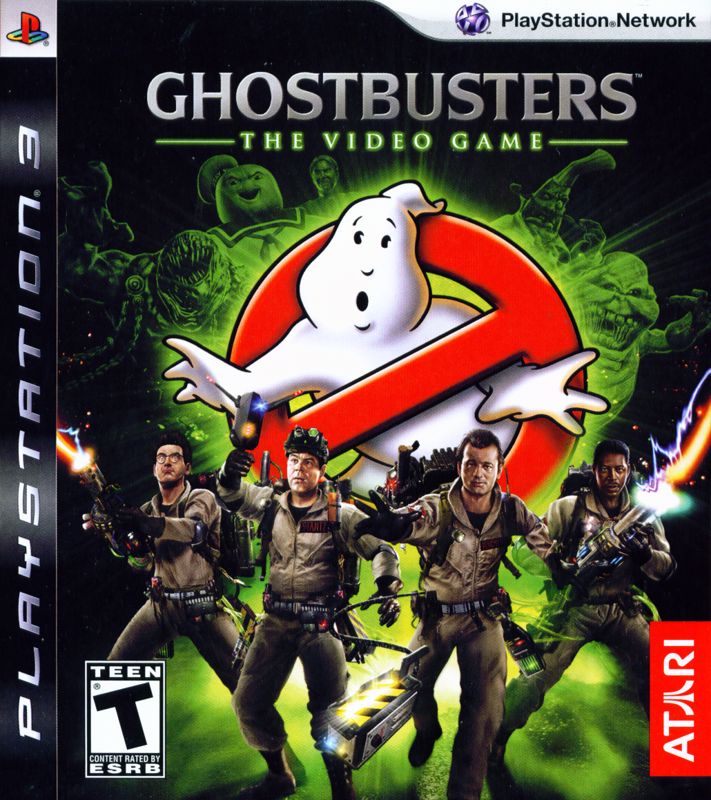
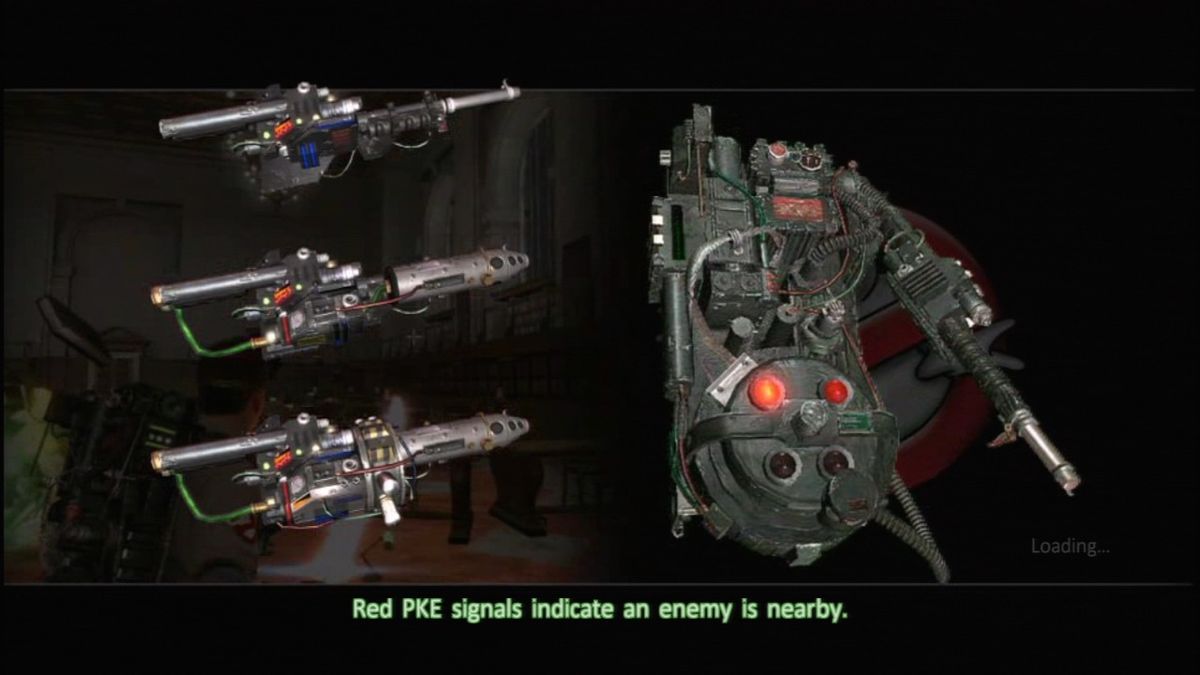
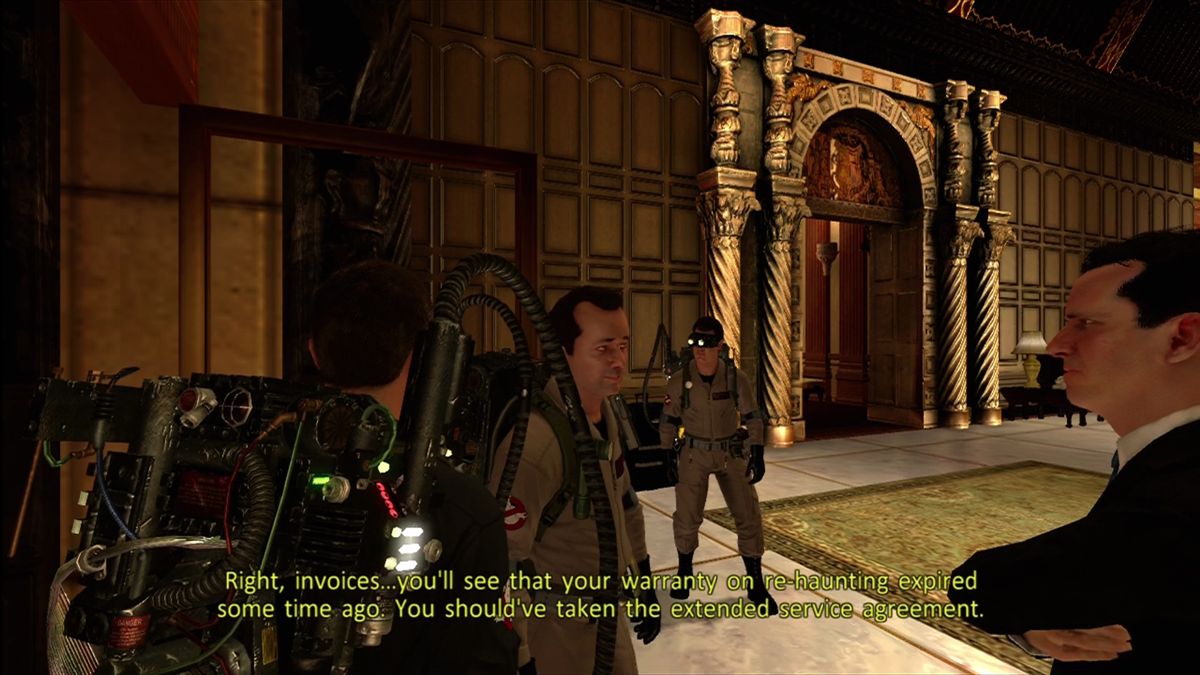
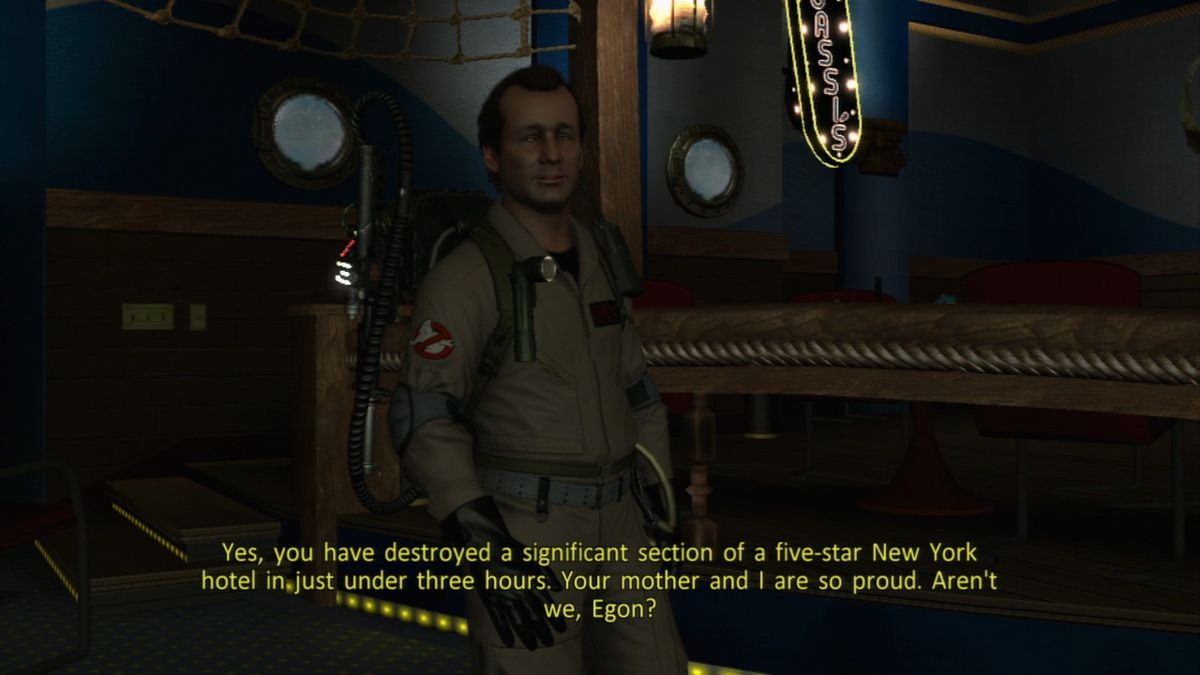
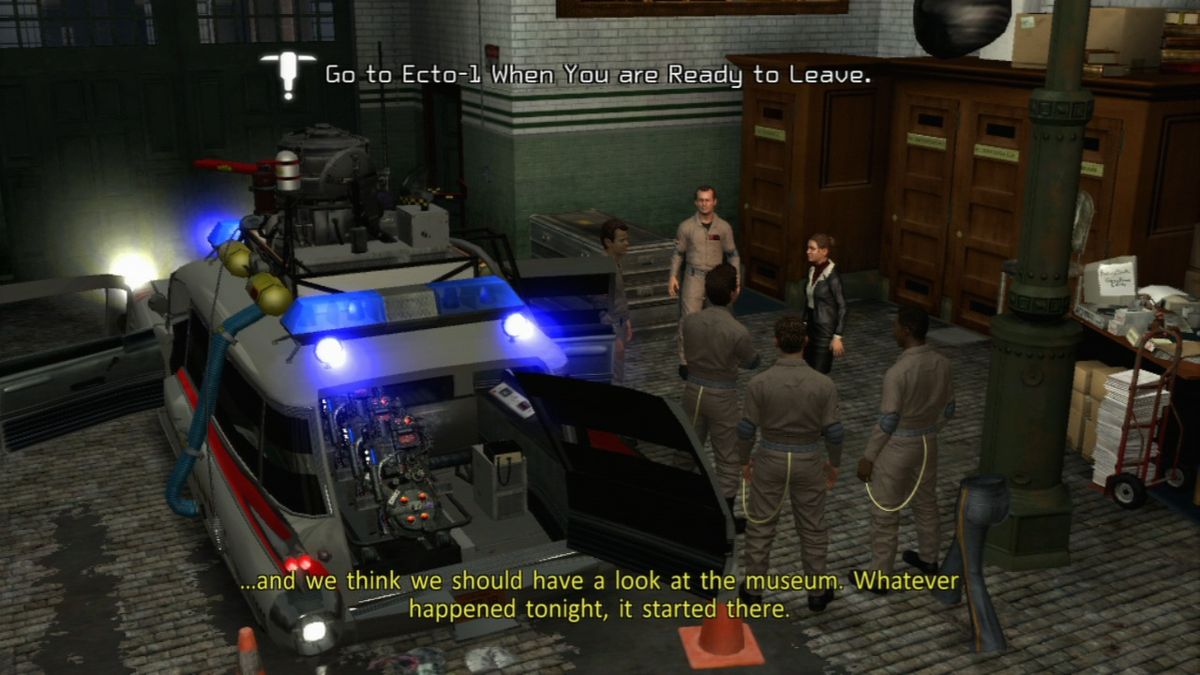
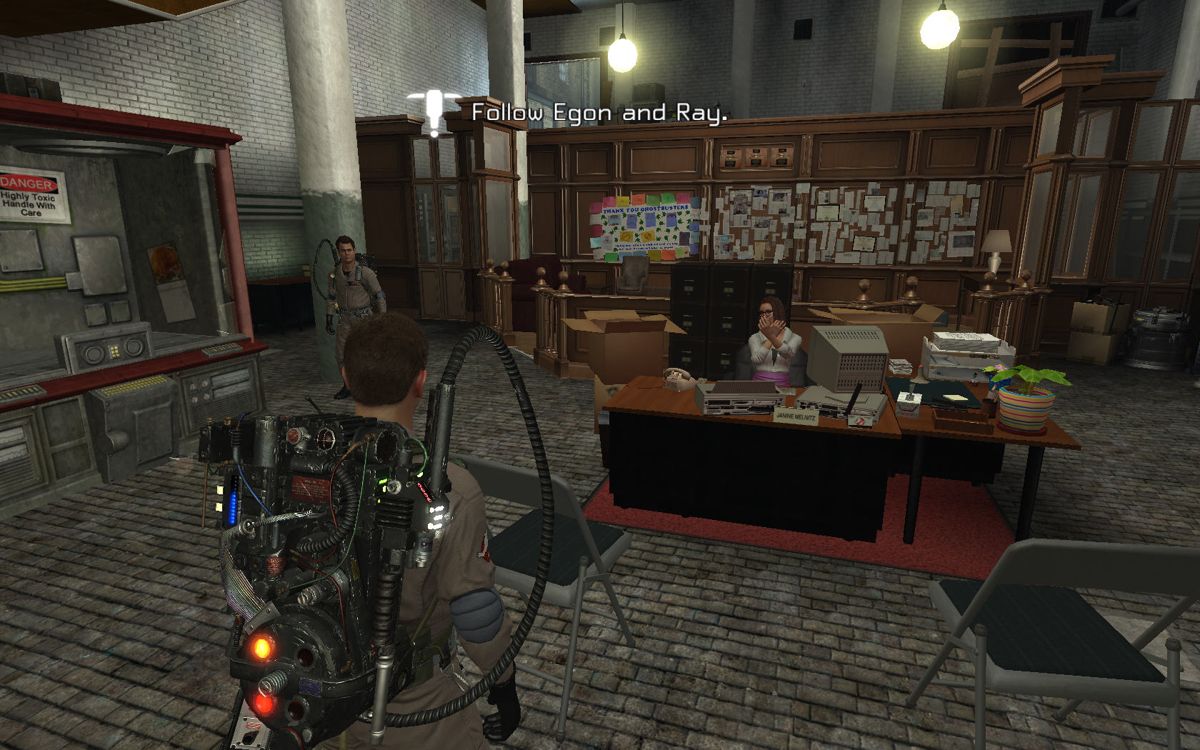



Reviews
There are no reviews yet.